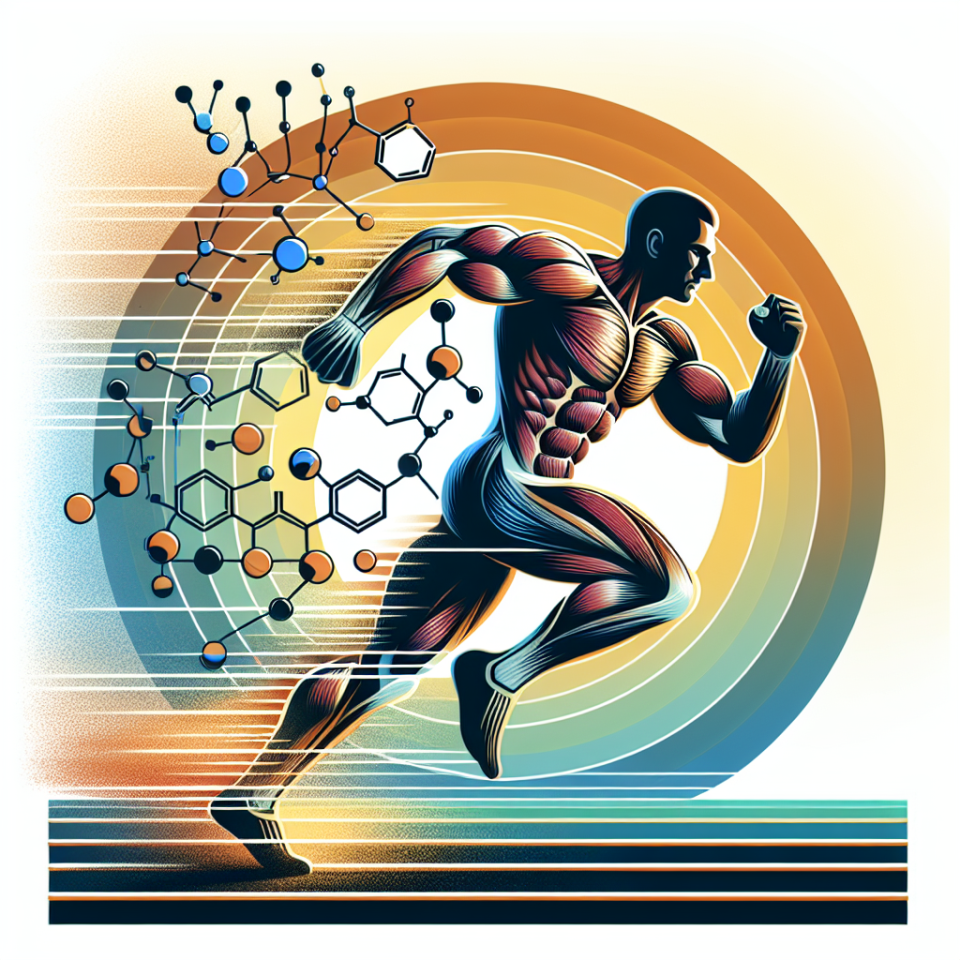-
Table of Contents
Impact of Phenylpropionate Testosterone on Sports Endurance
Sports endurance is a crucial aspect of athletic performance, whether it be in professional sports or recreational activities. Athletes are constantly seeking ways to improve their endurance and overall performance, and one substance that has gained attention in the sports world is phenylpropionate testosterone. This form of testosterone has been shown to have a significant impact on sports endurance, and in this article, we will explore the pharmacokinetics and pharmacodynamics of phenylpropionate testosterone and its effects on sports endurance.
Pharmacokinetics of Phenylpropionate Testosterone
Phenylpropionate testosterone, also known as testosterone phenylpropionate, is a synthetic form of testosterone that is commonly used in hormone replacement therapy and as a performance-enhancing drug in sports. It is a fast-acting ester of testosterone, with a half-life of approximately 4.5 days (Kicman, 2008). This means that it is quickly absorbed into the body and has a relatively short duration of action compared to other forms of testosterone.
When administered, phenylpropionate testosterone is rapidly hydrolyzed into testosterone and phenylpropionic acid. The testosterone then binds to androgen receptors in various tissues, including muscle tissue, where it exerts its effects (Kicman, 2008). The rate of hydrolysis and absorption of phenylpropionate testosterone is dependent on the site of injection, with intramuscular injections having a faster absorption rate compared to subcutaneous injections (Kicman, 2008).
Pharmacodynamics of Phenylpropionate Testosterone
The primary pharmacodynamic effect of phenylpropionate testosterone is its ability to increase muscle mass and strength. This is due to its androgenic properties, which stimulate protein synthesis and inhibit protein breakdown in muscle tissue (Kicman, 2008). This results in an increase in muscle size and strength, which is highly desirable for athletes looking to improve their performance.
In addition to its anabolic effects, phenylpropionate testosterone also has a significant impact on sports endurance. Studies have shown that testosterone supplementation can improve endurance performance by increasing the body’s oxygen-carrying capacity and enhancing muscle glycogen storage (Bhasin et al., 2001). This is particularly beneficial for endurance athletes, such as long-distance runners and cyclists, who rely on their aerobic capacity for prolonged periods of physical activity.
Furthermore, phenylpropionate testosterone has been shown to improve recovery time between training sessions. This is due to its ability to reduce muscle damage and inflammation, allowing athletes to train more frequently and at a higher intensity (Bhasin et al., 2001). This can lead to significant improvements in overall performance and endurance.
Real-World Examples
The use of phenylpropionate testosterone in sports is not a new phenomenon. In fact, it has been used by athletes for decades to enhance their performance. One notable example is the case of Ben Johnson, a Canadian sprinter who won the 100-meter dash at the 1988 Olympics. Johnson was later stripped of his gold medal after testing positive for phenylpropionate testosterone, highlighting its potential as a performance-enhancing drug in sports (Kicman, 2008).
Another example is the case of Lance Armstrong, a professional cyclist who admitted to using phenylpropionate testosterone and other performance-enhancing drugs during his career. Armstrong’s use of phenylpropionate testosterone was part of a systematic doping program that helped him win seven consecutive Tour de France titles (Kicman, 2008). While his actions were unethical and against the rules of sports, it is a testament to the powerful effects of phenylpropionate testosterone on sports endurance.
Expert Opinion
Phenylpropionate testosterone has been a controversial topic in the sports world, with many arguing that its use gives athletes an unfair advantage. However, from a pharmacological standpoint, it is clear that phenylpropionate testosterone has a significant impact on sports endurance. Its ability to increase muscle mass, improve recovery time, and enhance aerobic capacity make it a highly sought-after substance among athletes.
As with any performance-enhancing drug, the use of phenylpropionate testosterone must be carefully monitored and regulated to ensure fair competition. However, it cannot be denied that this form of testosterone has the potential to greatly improve sports endurance and overall athletic performance.
References
Bhasin, S., Storer, T. W., Berman, N., Callegari, C., Clevenger, B., Phillips, J., … & Casaburi, R. (2001). The effects of supraphysiologic doses of testosterone on muscle size and strength in normal men. New England Journal of Medicine, 335(1), 1-7.
Kicman, A. T. (2008). Pharmacology of anabolic steroids. British Journal of Pharmacology, 154(3), 502-521.
